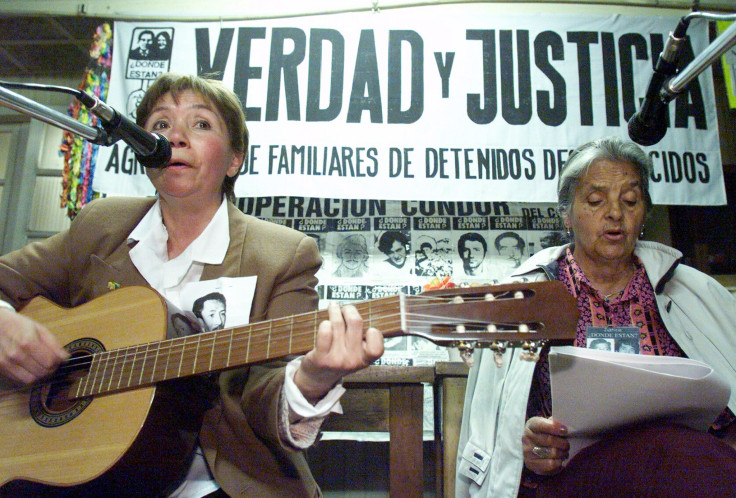
A new study says that music by a number of popular artists was used by the jailers of Chilean dictator Augusto Pinochet to torture thousands of political opponents who were imprisoned in the wake of the coup launched by the Pinochet-headed military on September 11, 1973. Former prisoners told University of Manchester researcher Dr. Katia Chornik, who is conducting a project called "Sounds of Memory: Music and Political Captivity in Pinochet's Chile", that George Harrison's "My Sweet Lord", the soundtrack to Stanley Kubrick's film "A Clockwork Orange" and earworms by Julio Iglesias were sometimes piped into the jails at high volumes for days at a time.
"Pinochet's system also used music to indoctrinate detainees, as a form of punishment and a soundtrack to torture," Dr. Chornik told the UK's Press Association. "Played at intensely high volumes for days on end, the otherwise popular songs were used to inflict psychological and physical damage." One of the prisoners who participated in Dr. Chornik's study told her that the Italian pop hit "Gigi l'Amoroso" had been sung to her as she was led to the interrogation room where she was to be tortured. A recording of it would be put on in the background before they proceeded.
But prisoners also used music to prepare themselves for torture sessions. Former inmates said they had listened to Harry Nilsson's "Without You", "Alone Again" by Gilbert O'Sullivan and "Morning Has Broken" by Cat Stevens on pocket radios before they were led off by their jailers. Others prisoners sang - sometimes in secret, other times openly, in camps where they were allowed to play instruments and put on shows. For example, in one of the largest camps for political prisoners located in Tres Alamos, Santiago, authorities who were awaiting an inspection by a human rights' commission from the Organization of American States (OAS) let a choir put on shows. Dr. Chornik is researching the revival of that choir. "Music brought prisoners together because it was a way to deal with their terrible suffering," she said. "But music was also a form of testimony. Many prisoners did not officially exist, so many were to disappear without trace and songs were a way of remembering who they were and what they believed in."
The dictatorship led by General Augusto Pinochet ruled in Chile for 17 years after laying siege to the presidential palace in 1973. The junta detained nearly 40,000 political prisoners in the 1,132 detention centers set up for that purpose.
RELATED: Was Pablo Neruda Poisoned By A CIA Agent?
© 2025 Latin Times. All rights reserved. Do not reproduce without permission.




